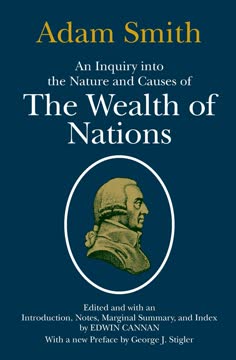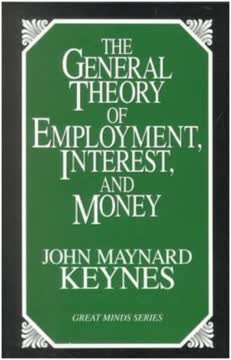重点摘要
1. 劳动分工显著提高生产力
劳动生产力的最大提升,以及在任何地方进行劳动的技能、灵巧和判断力的主要部分,似乎都是劳动分工的结果。
通过专业化提高生产力。 劳动分工通过将复杂任务拆分为简单的专业化操作,改变了经济生产。这种方法通过使工人在特定任务上成为专家,显著提高了效率和产出。
制针示例。 史密斯通过对制针过程的详细分析来说明这一概念。如果没有劳动分工,一个工人每天可能只能生产一根针。然而,当这一过程被分解为拉丝、整形、切割和顶端处理等专业任务时,十个工人每天可以生产48,000根针——生产力几乎提高了50,000%。
劳动分工的关键机制:
- 通过重复任务提高工人的灵巧性
- 减少在不同工作类型之间切换所浪费的时间
- 开发专业工具和机械
- 通过专注练习增强技能发展
2. 市场与交换促进专业化和财富创造
每个人的富裕或贫穷取决于他能否享受人类生活的必需品、便利和娱乐的程度。
经济相互依赖。 市场使个人能够交换其专业化生产,允许人们获得超出个人能力范围的商品和服务。这种互换系统通过使每个人专注于最具生产力的活动来创造财富。
交换原则。 交易的能力将个人劳动转化为集体繁荣。人们不仅为了自己的消费而生产,还为了与他人交换剩余,从而创造出一个复杂的经济关系网络,增加整体社会财富。
市场动态:
- 鼓励专业化
- 创造创新机会
- 实现资源的有效配置
- 促进相互经济利益
3. 劳动是经济价值的真实衡量标准
劳动是所有事物的第一价格,是最初支付的购买货币。世界上所有的财富最初都是通过劳动而非黄金或白银购买的。
劳动作为经济基础。 史密斯认为,任何商品的真实价值是由生产它所需的劳动量决定的。这一革命性概念表明,人类的努力,而非任意的货币价值,根本上定义了经济价值。
价值衡量原则:
- 劳动时间代表生产的真实成本
- 不同劳动质量影响价值(技能、难度、时间)
- 价值不仅仅是货币,还代表人类的努力
- 经济交换反映劳动的内在价值
实际影响:
- 认可工人的贡献
- 提供经济价值的普遍衡量标准
- 挑战现有的经济估值方法
4. 货币作为普遍交换媒介的出现
货币在所有文明国家中已成为普遍的商业工具,通过它,各种商品得以买卖或相互交换。
经济交换的演变。 随着社会的复杂化,货币自然发展,取代了直接的以物易物,成为一种灵活的、普遍接受的交换媒介。这一创新通过解决直接商品交易的局限性,显著提高了经济效率。
货币的关键功能:
- 促进复杂的经济交易
- 提供价值标准
- 允许经济价值的储存
- 实现更复杂的经济互动
历史发展:
- 源于商品交易
- 最初基于贵金属
- 逐渐通过政府机制标准化
- 随着时间推移变得越来越抽象
5. 商品价格由工资、利润和租金构成
租金、利润和工资是所有收入以及所有可交换价值的三大原始来源。
经济分配机制。 每一笔经济交易都涉及三个基本组成部分:支付给工人的工资、企业主获得的利润和土地所有者收取的租金。这一框架解释了经济价值如何在不同社会群体之间分配。
相互关联的经济组成部分:
- 工资代表劳动的报酬
- 利润奖励企业家的风险和投资
- 租金反映土地所有权和资源利用
- 每个组成部分影响整体经济动态
系统性互动:
- 平衡的分配支持经济稳定
- 一个组成部分的变化影响其他部分
- 反映复杂的经济关系
6. 市场价格根据供需波动
每种特定商品的市场价格由实际投放市场的数量与愿意支付商品自然价格的需求之间的比例决定。
价格决定机制。 市场价格并非固定,而是由可用供给与有效需求之间的互动动态决定。这一原则解释了价格如何自然调整以适应变化的经济条件。
价格调节动态:
- 稀缺性提高价格
- 过剩降低价格
- 有效需求驱动市场机制
- 竞争影响价格稳定
经济平衡:
- 鼓励资源的有效配置
- 为生产和消费提供信号
- 适应变化的经济环境
7. 经济进步依赖于资本积累
用于使其运作的资本数量,以及其具体使用方式。
资本作为经济催化剂。 经济增长需要持续的资本积累,这使得对提高生产力的技术、基础设施和劳动力发展的投资成为可能。资本代表着等待被利用的储存经济潜力。
资本积累原则:
- 促进技术创新
- 支持劳动力发展
- 提高经济生产力
- 为未来增长提供基础
投资策略:
- 再投资利润
- 开发高效的生产方法
- 持续改善经济基础设施
8. 不同经济主体有竞争利益
同一行业的人们很少聚在一起,即使是为了娱乐和消遣,谈话的结果往往是针对公众的阴谋,或是某种抬高价格的手段。
经济冲突动态。 不同的经济群体——工人、雇主、土地所有者——在经济利益上本质上存在不同甚至冲突的情况。理解这些动态有助于解释经济紧张局势和政策挑战。
利益集团特征:
- 工人寻求更高的工资
- 雇主希望降低劳动成本
- 土地所有者希望提高财产价值
- 政府试图平衡竞争利益
系统性挑战:
- 需要持续的谈判
- 需要平衡的政策制定
- 认识到固有的经济紧张关系
9. 土地租金代表关键经济机制
租金被视为使用土地所支付的价格,自然是租户在土地实际情况下能够支付的最高价格。
租金作为经济分配工具。 土地租金是分配土地资源的基本机制,反映了土地的生产力、位置和潜在经济价值。它确保了土地的有效利用,并为土地所有者提供收入。
租金决定因素:
- 土地肥力
- 地理位置
- 潜在经济生产力
- 市场需求
- 基础设施接入
经济影响:
- 鼓励土地的生产性使用
- 提供经济信号
- 支持财产开发
10. 经济改善由生产力提升驱动
劳动的丰厚回报,使他们能够更好地为子女提供生活,从而自然倾向于扩大和延伸这些界限。
生产力作为经济引擎。 通过技术创新、技能发展和高效的组织方法,劳动生产力的持续提升推动了经济增长和社会繁荣。
提升生产力的策略:
- 技术创新
- 劳动力教育
- 高效的劳动组织
- 持续的过程改进
- 激励对齐
社会效益:
- 增加经济产出
- 提高生活水平
- 扩大经济机会
- 持续的社会发展
最后更新日期:
FAQ
What's An Inquiry into the Nature and Causes of the Wealth of Nations about?
- Economic Principles: The book explores fundamental economic principles, focusing on how wealth is generated and distributed in society.
- Division of Labor: Adam Smith emphasizes the importance of the division of labor, which enhances productivity and efficiency in manufacturing and agriculture.
- Role of Markets: It discusses how free markets operate, the significance of competition, and the invisible hand that guides economic transactions.
- Critique of Mercantilism: Smith critiques the mercantile system, arguing for wealth measurement through productivity rather than gold and silver accumulation.
Why should I read An Inquiry into the Nature and Causes of the Wealth of Nations?
- Foundational Economic Text: This book is a cornerstone of modern economics, providing insights that remain relevant today.
- Understanding Market Dynamics: It offers a comprehensive understanding of how markets operate, the role of competition, and the impact of government policies on economic activity.
- Influence on Economic Thought: Reading this work allows you to appreciate the historical context of economic theories and their evolution, influencing many contemporary economists.
- Practical Applications: Smith's ideas on free markets, competition, and the division of labor are applicable to current economic discussions and policies.
What are the key takeaways of An Inquiry into the Nature and Causes of the Wealth of Nations?
- Importance of Free Markets: Smith advocates for free markets, arguing that they lead to more efficient resource allocation and wealth creation.
- Invisible Hand Concept: The idea that individuals pursuing their self-interest inadvertently contribute to the overall good of society is a central theme.
- Role of Specialization: Specialization and the division of labor lead to increased efficiency and productivity, foundational to modern economic practices.
- Critique of Mercantilism: The book critiques mercantilist policies, promoting the benefits of trade and specialization.
What are the best quotes from An Inquiry into the Nature and Causes of the Wealth of Nations and what do they mean?
- "The division of labor is limited by the extent of the market.": This quote underscores the idea that specialization can only occur when there is sufficient demand for goods, linking market size to economic efficiency.
- "It is not from the benevolence of the butcher, the brewer, or the baker that we expect our dinner.": Smith illustrates that self-interest drives economic activity, as individuals work to fulfill their own needs, ultimately benefiting society.
- "The invisible hand": This phrase encapsulates Smith's belief that individuals pursuing their own interests inadvertently contribute to the overall economic good.
How does Adam Smith define wealth in An Inquiry into the Nature and Causes of the Wealth of Nations?
- Broader Definition: Smith defines wealth not just in terms of money or gold but as the totality of goods and services produced in a society.
- Production and Labor: Wealth is generated through productive labor and the efficient use of resources, emphasizing the importance of economic activity.
- Quality of Life: A wealthy nation provides for the needs and comforts of its citizens, not just in material terms but also in quality of life.
- Focus on Productivity: The true measure of a nation's wealth is its ability to produce goods and services efficiently.
What is the division of labor according to Adam Smith in An Inquiry into the Nature and Causes of the Wealth of Nations?
- Increased Productivity: Dividing tasks among workers leads to greater efficiency and output, as seen in the example of a pin factory.
- Specialization Benefits: Workers become more skilled and faster at their specific tasks, enhancing overall production capabilities.
- Market Limitations: The extent of the division of labor is limited by the size of the market; larger markets allow for greater specialization.
- Economic Growth: This principle is foundational to modern manufacturing and economic organization, driving economic growth.
What is the "invisible hand" concept in An Inquiry into the Nature and Causes of the Wealth of Nations?
- Self-Interest Driving Economy: The invisible hand refers to the self-regulating nature of the marketplace, where individuals pursuing their own interests inadvertently benefit society.
- Market Efficiency: This concept illustrates how competition leads to efficient resource allocation, as businesses strive to meet consumer demands.
- Moral Implications: Smith suggests that this mechanism aligns personal gain with the public good, promoting overall economic welfare without the need for direct intervention.
- Foundation for Capitalism: It highlights the importance of individual choice in driving economic growth.
How does Adam Smith define the role of money in An Inquiry into the Nature and Causes of the Wealth of Nations?
- Medium of Exchange: Money serves as a universally accepted medium of exchange, facilitating trade and commerce.
- Measure of Value: It provides a standard measure of value, allowing for easier comparison of the worth of different goods and services.
- Store of Value: Money acts as a store of value, enabling individuals to save and defer consumption until a later time.
- Economic Functionality: These roles of money are crucial for the functioning of markets and economic transactions.
How does An Inquiry into the Nature and Causes of the Wealth of Nations address the concept of free markets?
- Advocacy for Free Trade: Smith advocates for minimal government intervention in markets, arguing that free trade leads to greater prosperity.
- Competition Benefits: He explains that competition in free markets drives innovation, improves quality, and lowers prices for consumers.
- Natural Order: Smith believes that free markets operate according to natural laws, where supply and demand determine prices without the need for external control.
- Economic Growth: Free markets encourage economic growth by allowing for efficient resource allocation and innovation.
What are the effects of government policies on the economy as discussed in An Inquiry into the Nature and Causes of the Wealth of Nations?
- Interference in Markets: Smith criticizes government interventions that distort market operations, such as tariffs and monopolies, which can hinder economic growth.
- Promotion of Free Trade: He advocates for free trade policies that allow for competition and innovation, ultimately benefiting consumers and the economy.
- Role of Regulation: While acknowledging the need for some regulation, Smith argues that excessive control can lead to inefficiencies and reduced prosperity.
- Economic Efficiency: The book suggests that minimal government intervention allows markets to function more efficiently.
How does Adam Smith explain the relationship between wages and profits in An Inquiry into the Nature and Causes of the Wealth of Nations?
- Inverse Relationship: As wages increase, profits tend to decrease, and vice versa, due to the competition for resources and labor.
- Market Dynamics: The balance between supply and demand for labor influences both wages and profits, with higher demand for labor driving wages up and profits down.
- Impact of Stock: The amount of capital available for investment also affects this relationship, as more stock can lead to higher wages but lower profits due to increased competition.
- Economic Balance: Understanding this relationship is crucial for analyzing economic conditions and business strategies.
What are the implications of Smith's ideas for modern economic policy?
- Foundation for Capitalism: Smith's principles laid the groundwork for modern capitalism, emphasizing the importance of free markets and competition.
- Focus on Productivity: Modern economic policy often reflects Smith's emphasis on productivity and efficiency as key drivers of economic growth.
- Critique of Government Intervention: Smith's skepticism of government intervention remains relevant today, as many economists argue for limited government roles in markets.
- Policy Influence: His work encourages a focus on individual entrepreneurship and market dynamics, influencing economic policies worldwide.
评论
《国富论》被视为经济学的基础性著作,以其对经济体系和原则的全面分析而受到赞誉。读者们欣赏斯密清晰的写作风格和实用的例子,尽管有些人认为书中的部分内容显得过时或乏味。这本书对资本主义思想的影响广泛被认可,围绕其解读和现代相关性的辩论也层出不穷。批评者指出斯密对自由市场和劳动分工的关注,而一些人则认为他的观点在当代话语中被误解或过于简化。

















